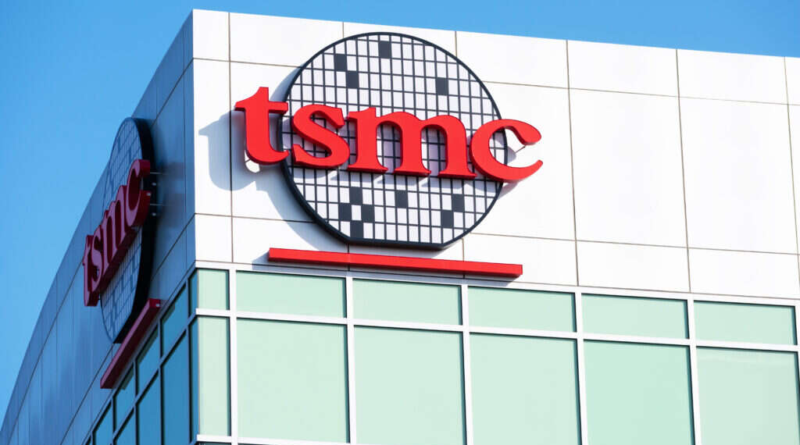What is TSMC? – Tech Monitor
Apple, Amazon and even Google all use TSMC chips, but what makes this particular manufacturer so popular?
By Silvia Pellegrino
Taiwan Semiconductor Manufacturing Co, or TSMC as it is more commonly known, is the world’s largest semiconductor manufacturer.
Chips built by TSMC power the vast majority of electronic devices in the world, from smartphones, laptops and servers to more basic devices used in cars and consumer goods. Unlike rivals such as Samsung and Intel, it does not market its own processors, instead focusing solely on building them for third parties.
TSMC’s dominance of the semiconductor manufacturing market saw it cash-in during the recent global chip shortage, and its profits continue to grow. In January it announced $15.7bn revenue for 2021, with a profit of $6bn. Its end-of-year share price hit a record high of 683 Taiwanese dollars ($24.57 US).
Major tech companies that use TSMC for chip production include Apple, Amazon and Google, which contract the company to build the chips used in cloud servers. Chip designers Qualcomm and Nvidia are also major clients.
Marvell, and MediaTek are also among its customers, though the latter, which is the world’s fourth largest producer of smartphone chips, is diversifying its supply chains by also using devices produced by Intel and designed specifically for low-power devices.
The Covid-19 outbreak increased demand for electronics, and former US president Donald Trump’s trade war with China exacerbated the shortfall.
With more than three times the market share of its nearest semiconductor manufacturing competitor, Samsung, TSMC has almost total dominance of the sector.
TSMC also has a large competitive advantage through its process technology, which enables it to produce chips with the highest transistor density, lowest cost, and best quality on the market. It expects its three-nanometre process, its most advanced manufacturing line yet, to be up and running in 2023.
Over the next three years, TSMC plans to invest more than $100bn in capital projects while Samsung and Intel try to catch up.
As the chip shortage demonstrated, the production of computers, cars and many other products is severely impacted when TSMC is at full capacity. Any interruption to its factory output would have serious consequences for the global economy.
Though Taiwan currently functions as an independent country, China has long claimed sovereignty over the island. It is unclear what would happen to TSMC if the long-mooted invasion of Taiwan by China took place.
According to Chen Ming-tong, the chairman of Taiwan’s National Security Bureau, if China invaded, TSMC would be unable to do business because US sanctions which prevent Chinese chipmakers from accessing tools they need to produce leading-edge devices would then apply to the company.
“TSMC needs to integrate global elements before producing high-end chips,” Chen Ming-tong said. “Without components or equipment like ASML’s lithography equipment, without any key components, there is no way TSMC can continue its production.”
Sanctions on TSMC would see the worldwide semiconductor manufacturing capacity decrease by more than half. To help see off this eventuality and decrease US reliance on manufacturers in South East Asia, such as TSMC, President Joe Biden enacted the CHIPS and Science Act in the United States in 2022, which includes $52bn in funding to promote domestic chip manufacturing.
Some US military academics claim that TSMC should destroy its facilities to prevent the technology from being copied in the case of a Chinese invasion.
TSMC is using funding from the CHIPS and Science act to support its plans to build new manufacturing facilities in the US.
It is building a new plant in Phoenix, Arizona, which will come online in 2024. A second factory is also set to be built at the site, and the pair of fabs will enable TSMC to eventually manufacture 3nm and 4nm chips.
According to TSMC, the two Arizona fabs will produce around 600,000 wafers each year and support 110,000 new jobs in the chip supply chain.


